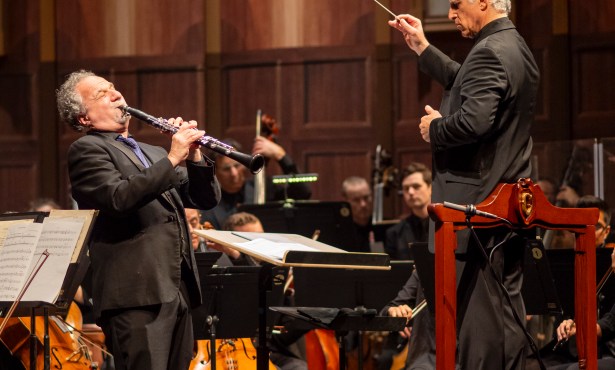Pollock Theater Presents ‘Frankenstein’: Afterlives
UCSB’s Carsey-Wolf Center Pays Homage to Mary Shelley’s Monster
Two hundred years ago, 20-year-old Mary Shelley published her novel Frankenstein, a tale of ambition, family, and murderous revenge. The story, which resonates today, ostensibly made the writer the mother of gothic horror and science fiction. This fall, UCSB’s Carsey-Wolf Center will pay homage to her story by hosting Frankenstein: Afterlives, a six-day film and discussion series consisting of features that range from a 1970s American cult classic to a masterpiece of Spanish cinema to a modern Mary Shelley biopic, aptly capturing the depth and breadth of Frankenstein’s enduring legacy.
Screened in UCSB’s Pollock Theater, each of the films will be followed by a conversation moderated by film and social science experts, including UCSB English professor Julie Carlson. Carlson, who will lead the Q&A for the biopic Mary Shelley, which premiered last spring at the Tribeca Film Festival, has studied the author extensively in her career, noting that Frankenstein is of great relevance for multidisciplinary studies of ethics and humanity. “We have a tendency in popular culture and in the academy to polarize science and humanities,” Carlson said. “[Frankenstein] shows their convergences.”
It is in this vein that the series is crafted and that Carlson organized a Frankenstein-centric, interdisciplinary conference, which takes place October 25. As a supplement to Frankenstein: Afterlives, Carlson hopes the forum will give insight into how a monster story has been on the minds and drawing boards of engineers, writers, sociologists, and filmmakers alike for the past two centuries.
However, it’s not just the novel’s 200th anniversary and the looming realities of bioengineering that make this series timely. Patrice Petro, a UCSB film and media studies professor and director of the Carsey-Wolf Center, pointed out that the series is especially pertinent in the current social climate, citing the story of Mary Shelley and her creation as fodder for modern feminism: “How does Mary Shelley’s life, and that of her parents and circle of friends, provide insight into the role of women writers, communities of writers, the monster and the monstrous, musings on human nature, and unchecked male ambition, which leads to destruction, injustice, devastation?” she posed, adding that these questions are exactly why “the Frankenstein story is ripe for retelling and re-envisioning.”
In addition to the conference and a screening of the Frankenstein-inspired Rocky Horror Picture Show October 26, at UCSB’s Campbell Hall, the schedule for the series’s film programming is as follows:
Mary Shelley. Directed by Haifaa Al-Mansour, this 2017 biopic stars Elle Fanning and uncovers the feminist rage and tragedy that propelled the creation of Frankenstein. (Oct. 11)
Bride of Frankenstein. A sequel to the 1931 cinematic hit Frankenstein, this 1935 film follows Dr. Frankenstein’s efforts to build his monster a mate. Considered a masterpiece of classic horror. (Oct. 18)
The Spirit of the Beehive (El espíritu de la colmena). This Spanish film contemplates postwar dictatorship through the eyes of a young girl inspired by the famed monster. (Nov. 8)
Young Frankenstein. Mel Brooks’s classic comedy/horror box-office smash details the plights and plunders of Dr. Frankenstein’s eccentric grandson, played by Gene Wilder. (Nov. 13)
Flesh for Frankenstein. Heavily influenced by Andy Warhol, this is an art/cult film that spoofs the original Frankenstein by coupling oddball humor with classic horror. (Dec. 6)
As well as providing entertainment, the films, Carlson and Petro believe, are educational. “I like how it’s about so many things,” Carlson said of Frankenstein’s significance. “Besides the power and danger of scientific inventiveness, it’s completely a text about justice and what we owe each other, and why it’s impossible, especially for subordinated peoples or new creatures, to exist when society isn’t prepared to see them as anything but monstrous. It’s one of the most powerful texts as a spokesperson for the disenfranchised. It speaks to all.”
See carseywolf.ucsb.edu/pollock for the full schedule of films.



